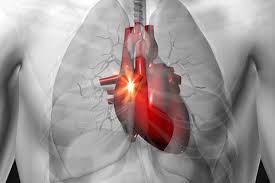Swine flu patients are at an increased risk of suffering a heart attack or stroke, Doctors Association Kashmir led by Dr Nisar-ul-Hassan said on Saturday.
Dr Nisar, in a statement issued here, said, “While people may think of the flu as nothing more than a fever, runny nose or body aches, the consequences could be grave.”
He quoted researchers from the London School of Hygiene and Tropical Medicine, saying that the study found that the risk of heart attack and stroke rose sharply among the participating patients during the first few days of the illness.
“A five-fold increase in heart attacks and three-fold increase in strokes were reported during the first three days of infection,” he said.
Dr Nisar said the flu causes acute and severe inflammation that builds up fat deposits in the inner walls of the blood vessels. “These fat deposits dislodge and get stuck in heart or brain, where they block the blood flow,” he said.
He added that the infection activates blood cells and clotting system leading to increased risk of blood clots, which in turn hamper the blood circulation.
“The number of heart attacks and stroke patients in Kashmir doubles in winter and flu is a major factor,” he said.
He said the risk is similar to the risk seen for other known risk factors, such as high blood pressure, diabetes and smoking.
Dr Nisar said flu vaccine is the single best tool to reduce the risk of heart attack or stroke. “Studies have shown people who receive flu shots are 55 percent less likely to suffer a heart attack or stroke,” he said.
“Ideally, people should get vaccine by the end of October. However, getting vaccinated later can still be beneficial and vaccination should continue to be offered throughout the flu season, even into January or later,” Dr Nisar advised.
He said the early use of antiviral therapy against the flu can further decrease the risk of heart attack and stroke that he said are the leading cause of death and disability both in men and women.
“Kashmir valley has so far reported 13 deaths due to swine flu which is an underestimate as many cases go unreported,” he said.
DAK warns, Swine flu increases risk of Heart Attack, Stroke




